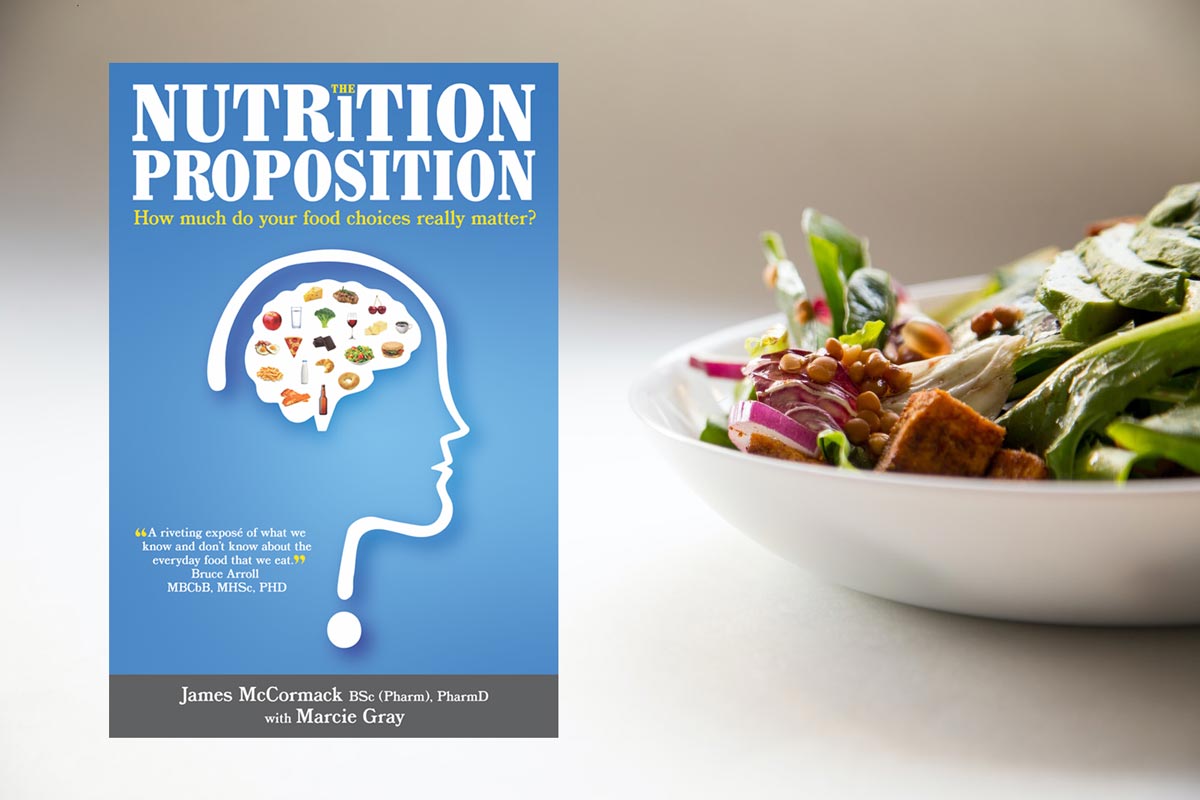 Terry Kemple is the Royal College of General Practitioners (RCGP) National Representative for Sustainability, Climate Change and Green Issues, and was President of the RCGP from 2015 to 2017. He is on Twitter: @TKemple
Terry Kemple is the Royal College of General Practitioners (RCGP) National Representative for Sustainability, Climate Change and Green Issues, and was President of the RCGP from 2015 to 2017. He is on Twitter: @TKemple
How much do our food choices really matter? Eating is a necessity, but for the well fed everything we eat is a decision. Our cultures, diseases, symptoms, concerns for animal welfare, desires to reduce greenhouse gas emissions, eliminate food waste, and other reasons important to us may all influence our decisions.
What we need to eat should be common knowledge, but our knowledge about diet and nutrition does not keep any better than fish. We have to understand the differences between our diets (the kinds of foods we habitually eat) and our nutrition (the foods we need for our health and growth), and how to change our diet for our best nutrition. All this is based on our legacies of misinformation about food, and a steady stream of new and confusing information.
This is not a topic that is usually taught well, even in medical education. Most of us struggle to know what is the best diet to recommend for a healthy and long life. A google web search ‘What is the best diet?’ produces millions of results. Diets are everywhere and can be like tyrants — they can promise you great things, expect your obedience, but in the end usually disappoint. The hard talking and demands of diet enthusiasts are often supported by softer-spoken advocates for mechanisms of action that aim to make the claims of a diet seem rational. There is no shortage of news articles promoting the latest nutritional ‘research’ on how to live longer, be thinner, and be more fit.
“Diets are everywhere and can be like tyrants — they can promise you great things … but in the end usually disappoint”
If you feel baffled by the science and pseudo-science and want to read an easy-to-understand book to be more confident and competent with your own knowledge and advice to others then this is one to read. James McCormack and Marcie Gray have written a review of the evidence about the known health effects of food. McCormack has had extensive experience talking to health professionals and consumers about the rational use of medication, both in Canada and internationally. His background is in pharmacy and for years he has been a leading advocate for shared-informed decision making using evidence-based information and rational therapeutic principles. Now he has turned his investigations, clear thinking, and explanations onto our nutrition.
This book can be read at different levels of expertise and interest. Each chapter is written as a conversation with the reader, explaining the evidence available, supported by summary tables of trial results, and with succinct take away summaries at the end of each chapter. Most of the current questions about nutrition and diets that can be answered from the available evidence are answered.
There is a menu of chapters on beverages, carbs, fats, protein, fruits/vegetables, meat, dessert, condiments, dairy/eggs, fast food, speciality diets, and much more, with added explanations on evidence-based medicine. For example, in a chapter on side orders, allergies and food intolerances are discussed.
“If you feel baffled by the science and pseudo-science and want to read an easy-to-understand book … this is the one to read.”
Non-coeliac gluten sensitivity occurs in 5%–10% of the population but in a re-challenge with gluten trial only 30% had a relapse. In another trial with a re-challenge with either gluten or placebo — with gluten 36% had a relapse, but with placebo 31% had a relapse. This evidence is hard to understand but it is interesting.
Because this book has been self-published on digital platforms, mistakes can be easily corrected and updates can be added. When the book was first published there had only ever been four large nutrition trials, but a fifth was reported a few weeks after publication. The book has since been updated with this new trial information with context. Anyone who had purchased a Kindle version automatically received the update. Purchased paperback versions cannot be updated but any new paperback will be the revised version. So, if you want to stay up-to-date buy the Kindle version.
In summary, McCormack believes that as an evidence-based clinician any nutrition decision ‘is best taken when informed by the best available evidence. That evidence tells us, in moderation you can eat the food you enjoy without fear or worry’. As the food writer and chef Mary Berry says, ‘Cakes are healthy too, you just eat a small slice.’
Featured book: James McCormack and Marcie Gray, The Nutrition Proposition, Independently published, 2022, £16.32, 979-8449768575
Featured photo by Hermes Rivera on Unsplash.






